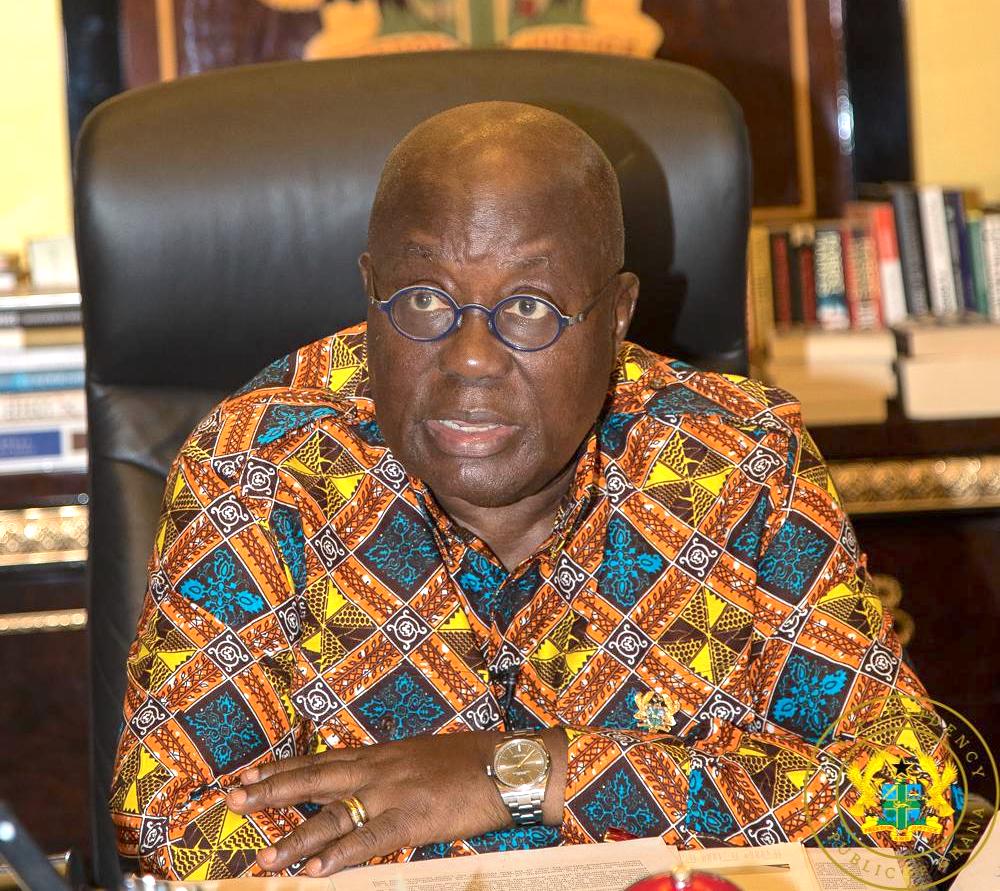
Why President Akufo-Addo called off December 17 referendum
The President, Nana Addo Dankwa Akufo-Addo, has called off the referendum slated for December 17, this year, saying there is lack of broad, national consensus among key stakeholders and the populace.
He has, consequently, instructed the Minister of Local Government and Rural Development, Hajia Alima Mahama, who was spearheading the process on behalf of the government, to abort the process and see to the withdrawal of the bills for the amendment of the Constitution, both in respect of articles 243(1) and 55(3).
Advertisement
“I do not believe that such an amendment should be driven as a party matter. There has to be a clear national consensus and agreement among the populace that a particular entrenched provision no longer serves the interest of the people and, thus, has to be removed,” he said.
“In this case, it had been long apparent that political parties were, in fact, actively involved in district assembly elections, despite their apparently non-partisan nature. The time has come to strip the process of its hypocrisy and accept and work with the reality of party involvement,” the President added.
Assembly, unit committee elections
The withdrawal of the referendum does not in any way affect the election of assembly and unit committee members on December 17.
The referendum was added to the assembly level elections to cut cost and make judicious use of resources.
Broad consultations
Addressing the nation on the referendum yesterday, the President indicated that for him, the attainment of a broad consensus on a matter as important as the amendment of an entrenched provision of the Constitution was critical.
He said he came into office, nearly three years ago, with the firm conviction, emanating from the campaign and national discussions, that there was a national consensus for two important amendments to the country’s governance system which would enhance its effectiveness and accountability.
Those were the reorganisation of the country’s regional governance structure and the potential involvement of political parties in local governance, he said.
He said it was in furtherance of that and other matters that, on Tuesday, April 18, 2017, he held a meeting with his three predecessors — Jerry John Rawlings, John Agyekum Kufuor and John Dramani Mahama — at the Jubilee House to seek their views and counsel on those issues.
“I came away from that meeting with the view that there was consensus among us that the time had come for political parties to participate openly in district assembly elections and local governance,” he said.
President Akufo-Addo added that there had also been consultations among the leadership of Parliament, Members of Parliament (MPs) on both sides and virtually all stakeholders who had been consulted, either by him or the Minister of Local Government and Rural Development, with the indications being clear that there was a broad national consensus for the repeal of Article 55(3).
The amendment of Article 55(3) would have meant that metropolitan, municipal and district chief executives (MMDCEs) would be competitively elected. Previously, the President appointed people to those positions.
The President debunked the notion that elections had been divisive, stating that they had rather been a unifying factor in the politics of the Fourth Republic, the reason “we have experienced the longest, uninterrupted period of stable, constitutional governance in our history,.”
Opposition U-turn
President Akufo-Addo said it was regrettable that the main opposition party, the National Democratic Congress (NDC), made what he described as “a U-turn” and stated that it was no longer prepared to go along with the national consensus.
“They indicated further that they will actively campaign for a ‘No’ vote. In as much as I still believe that there is enough support in the country for a ‘Yes’ vote to be successful on 17th December, I do not believe that this is the proper atmosphere in which an issue of such nature, that is, the repeal of an entrenched provision of the Constitution, should be addressed in our country,” he said.
Even after the NDC’s U-turn, he revealed, he undertook consultations across a broad range of opinions as to the way forward, with the general result being that the process of repeal should be put on hold, for the time being, to enable a durable, national consensus to be forged on the matter.
Public interest
The President said in the circumstances, he was convinced that it would not serve the public interest to go ahead withholding of the referendum on December 17, “even though I believe a strong campaign for a ‘Yes’ vote would have succeeded”.
He reiterated his belief in consensus building, saying: “I also think that on matters of such constitutional significance, there should be a broad, national consensus behind the repeal of an entrenched provision of the Constitution.”
Assurance
He gave an assurance that his government would continue to work for a broad, national consensus on the issue, adding that “should such a consensus be attained for the repeal of Article 55(3) of the Constitution and an agreement reached for political parties to participate in and sponsor candidates for election to district assemblies at any point during my tenure of office as President of the Republic, the matter will be brought again back to the front burner of our public discourse for the necessary action”.